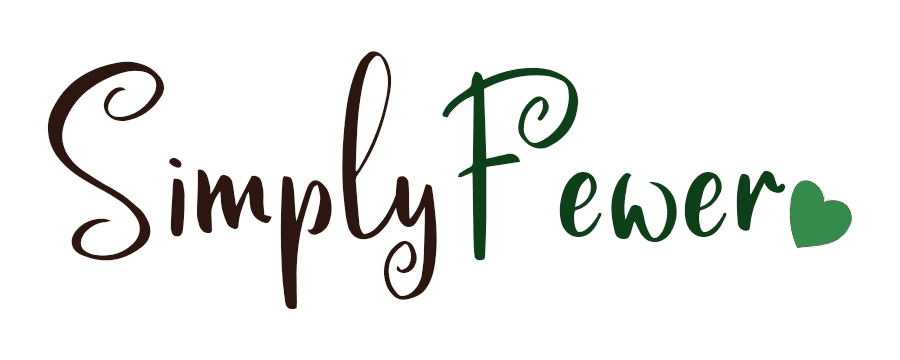In today’s always-on world, it’s easy to feel like you’re running on fumes. Between the endless to-do lists, work demands, family obligations, and just trying to get a good night’s sleep—life can feel like a nonstop race. But here’s the good news: learning how to stress less and calm your life isn’t some far-off fantasy. It’s a real, achievable goal you can start working toward today. And this guide will walk you through exactly how to do just that—with simple, powerful strategies that truly make a difference.
Table of Contents
Understand What’s Really Causing Your Stress
Let’s start with the big question: What’s actually stressing you out? Stress isn’t always about major life events. Often, it’s the small, everyday pressures that slowly pile up—like a dripping faucet filling a sink. Before you can address the stress, you need to identify the source.
Maybe it’s a demanding job, financial worry, relationship struggles, or simply too many obligations. Whatever the cause, naming it is powerful. Once you recognize the root of your tension, you can start working on real solutions instead of chasing distractions.
Real-life example: Take Emily, a mother of two who thought she was overwhelmed because of parenting duties. But after journaling for a week, she discovered it was actually her unrealistic expectations and lack of alone time causing the stress. With this insight, she began setting boundaries and carving out daily quiet time—which changed everything.
Simplify Your Schedule and Priorities
If your calendar looks like a game of Tetris, no wonder you’re stressed. The modern culture glorifies being busy, but here’s a secret: You don’t need to do it all. In fact, trying to do it all is often the fastest road to burnout.
Think of your schedule like a garden. You can’t grow healthy plants if the soil is packed with weeds. Start weeding out the nonessentials. Ask yourself:
- Does this activity align with my values?
- Is this obligation draining or energizing me?
- Can I delegate or say “no” to this?
Metaphor time: Your time is like a suitcase—only so much fits. If you keep cramming more in, something important will get wrinkled or left behind. Pack mindfully.
Build Daily Calm into Your Routine
Calm isn’t something you chase—it’s something you cultivate. And the best way to grow it is to make it a daily habit, just like brushing your teeth.
Simple practices can make a massive difference:
- Morning stillness: Start the day without your phone. Just breathe, stretch, or sip your coffee in silence.
- Mindful breaks: Set a timer every two hours to stand, stretch, or look outside.
- Evening wind-down: Avoid screens before bed and replace them with reading, journaling, or soft music.
Expert insight: Dr. Kristen Neff, a pioneer in self-compassion research, emphasizes that “tiny moments of mindfulness” throughout the day are far more effective than occasional big changes.
Create a Calm-Friendly Environment
Your space affects your state. Clutter, noise, and disorganization create low-grade stress, even if you’re not consciously aware of it.

Here’s how to calm your surroundings:
- Declutter one small space at a time (your desk, a drawer, a corner).
- Use soft lighting and add soothing scents like lavender or eucalyptus.
- Bring in natural elements—plants, open windows, wooden textures.
Remember, your home doesn’t need to be Pinterest-perfect. It just needs to feel like a safe, soothing haven for you.
Anecdote: One reader shared that after decluttering her nightstand and replacing the pile of books with just one journal and a plant, she slept better than she had in years.
Reframe Negative Thoughts
Stress isn’t just about circumstances—it’s also about how we interpret them. Our thoughts can amplify stress or help dissolve it.
Let’s say your friend doesn’t text back. You might think, “They’re mad at me,” which creates anxiety. But if you reframe that thought to, “They’re probably busy, just like I get sometimes,” your mind calms down.
This simple act of thought-checking can drastically reduce emotional tension. Use tools like:
- Cognitive reframing
- Gratitude journaling
- Self-compassion exercises
Metaphor: Think of your thoughts as passengers on a bus. You’re the driver. Some passengers are loud, but you decide whether to listen or not.
Move Your Body, Calm Your Mind
Exercise isn’t just about fitness—it’s a stress superhero. Moving your body releases feel-good hormones, reduces anxiety, and clears mental fog.
But we’re not talking about hour-long gym sessions unless that’s your thing. Even gentle movement counts:
- A 10-minute walk around the block
- Stretching while your coffee brews
- Dancing in your living room
Case study: A workplace in Denmark integrated 5-minute movement breaks twice a day. Within a month, employee stress levels dropped by 30%.
Protect Your Energy with Boundaries
Ever felt exhausted after a conversation? That’s a sign of leaky boundaries. Stress often stems from people-pleasing or overcommitting.
To protect your peace:
- Say “no” without over-explaining
- Limit time with toxic people
- Set tech boundaries (e.g., no work emails after 7 p.m.)
Quote from Brené Brown: “Daring to set boundaries is about having the courage to love ourselves, even when we risk disappointing others.”
When you honor your energy, you teach others how to treat you—and create space for a calmer life.
Connect with People Who Light You Up
Isolation is a stress amplifier. On the flip side, authentic connection acts like an emotional balm.

Spend time with people who:
- Make you laugh
- Listen without judgment
- Support your growth
These don’t have to be big social gatherings. A 10-minute heart-to-heart with a close friend can reduce stress more than a spa day.
Real-world example: During the pandemic, many people began weekly Zoom chats with old friends. What started as a way to “check in” became their most treasured source of emotional support.
Unplug and Find Joy in the Present
Scrolling through highlight reels on social media can make your own life feel lacking. But joy isn’t found in curated content—it’s in the ordinary moments.
To reconnect with now:
- Put your phone in another room during meals
- Go on a walk and notice five beautiful things
- Try a hobby just for fun, not for productivity
Joy and calm are twins—they show up when you stop chasing and start noticing.
Anecdote: One woman began painting watercolor flowers every Sunday. She wasn’t good at it (her words), but it became her favorite weekly ritual.
Conclusion: A Calmer Life is Within Reach
Stress isn’t something you have to accept as the norm. With small shifts in awareness, boundaries, habits, and environment, you can reduce stress and reclaim your peace.
It starts with one choice. Maybe today, it’s taking five deep breaths before opening your inbox. Tomorrow, it might be saying “no” to something that drains you.
Bit by bit, these changes build. And before long, you’ll find yourself living a calmer, more centered life—not by accident, but by design.
FAQs
1. What is the fastest way to calm down when I feel overwhelmed?
The quickest method is deep breathing. Try inhaling for four counts, holding for four, exhaling for four, and pausing for four—known as box breathing. It slows your heart rate and signals your brain to relax.
2. How do I calm my life when I have kids and a busy household?
Focus on micro-moments of calm. Even five minutes of alone time in the morning or before bed helps. Also, involve your family in calming rituals like quiet dinners or evening walks.
3. Can stress ever be helpful?
Yes, in small doses. Stress can motivate and focus us. But chronic stress is harmful. The goal isn’t to eliminate all stress, but to manage and recover from it well.
4. How can I stress less at work?
Prioritize your top three tasks daily, take mindful breaks, and set boundaries like not checking emails after hours. Don’t be afraid to communicate needs with your manager or coworkers.
5. What if I try these things but still feel overwhelmed?
Sometimes stress runs deeper and may require support from a therapist or counselor. Seeking help is a strong and smart step—not a weakness.

